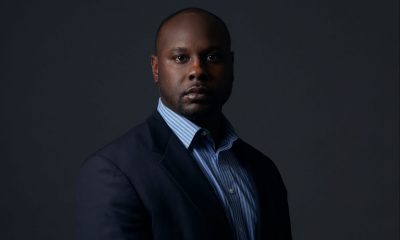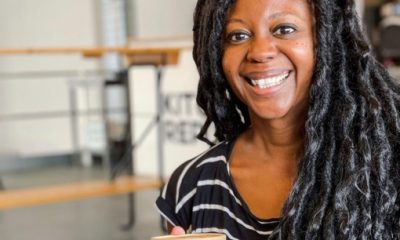CEO Insights
CEO Profile: Bako Ambianda, A Global Business Disruptor

Bako Ambianda is the Founder, Chairman, and CEO of Labacorp Group of Companies (LGC), a dynamic diversified holding company with a portfolio of businesses and strategic investments in key sectors. He serves as the President and CEO of Labacorp Energy Limited (LEL), an indigenous oil and gas company with operations in the energy, mining, and power generation sectors primarily in Cameroon with extended operation’s in international markets.
A versatile and innovative entrepreneur, Mr. Bako also serves as the President and CEO of Labacorp Power Company (LPC), an independent power producer and renewable energy development company. He is also the Managing Partner of Labacorp Investments SARL (LIN), an acquisitions and investment management firm dedicated to African markets.
Well-known and respected as an International Development Expert, with the ability to assemble business and government leaders. Mr. Bako is the Founder, Chairman & CEO of ATIGS Group, Inc (Africa Trade & Investment Global Services), a trade promotion, project facilitation, and development company, that offers full spectrum of consulting and business development services to companies looking to expand or establish their operations in African markets. Mr. Bako is the creator and leading proponent of the “Afridevelopism” economic concept, and an active player in activities pertaining to trade, investment, and economic development in Africa. He is an indisputable powerful connector who has a strong track record of operational excellence, with an extensive global network.
He has been quoted many times in media, and received several honours and awards for catalyzing significant development initiatives to name a few: In 2019, he featured in the official African Union (AU) Invest in Africa Magazine as an African Diaspora that is playing a leading role in contributing to the development of Africa, and the magazine was distributed to the office of all African heads of state. He received the 2019 Africa SME Development Award by Africa Business Portal (ABP).
In 2018, Mr. Bako was named one of the Most Influential People of African Decent (Under 40) by MIPAD, and he also received the 2018 Global Business Disruptor Award by Professional Association of Young Africans (PAYA) in Texas. In 2018, Mr. Bako made history in hosting the Africa Trade & Investment Global Summit (ATIGS), the premier Africacentric business event held in the United States in 2018 at the Ronald Reagan Building and World Trade Center,Washington DC with over 2,300 high-level delegates from 92 countries.
The event also featured on the Nasdaq Tower,Times square, New York, the most valuable advertising spaces in the world. The ATIGS event which he founded in 2015 is a leading prestigious biennial Africa-global business conference and exhibition. In 2018, Mr. Bako hosted the first ever Africa House at the International South by Southwest Festival in Austin, Texas. The event was powered by Africa Worldwide Alliance Partnerships (AfriWAPA), an initiative which he founded in 2017 to help African enterprises of all stages build their brands at mega international shows.
In 2016, he founded Solar Business Events, a portfolio of leading solar exhibitions and conferences including Solar Business Festival (SBF), and Solar Business Expo (SBE) which has been held successful in Texas, Chile, Florida, Mexico, and Coastal Rica. In 2016, the Solar Business Festival (SBF) became the largest solar trade show ever held in the state of Texas and was endorsed by Governor Gregg Arbor, Mayor Steve Alder, and Congressman Lloyd Doggett. In 2017, and 2018, Panasonic North America was the presenting Sponsor.
In 2015, he founded Global Attain Advancement (GAA), an international trade mission, publishing, and events company that implements trade programs, capacity building workshops, and high-quality events to help businesses connect with customers, lunch new products, promote their brands, and expand into new markets.
In 2012, he founded Bako Ambianda International (BAI), a professional development organization that focuses on unlocking the potentials of young professionals globally. Through BAI, he lunched The Bako University, to mentor, train and coach young professionals. Mr. Bako has spoken at several universities and authored six books on economic development and personal development including ‘Destined to Win In the Game of Life” “Ingredient to Uplift Your Journey”, “Who’s in Your Ears”, “Invest in Your Mindset”, “The Unstoppable Warrior” “Bako Nine Wisdom Keys” and “Fueling Africa’s Economic Development”.
Also Read Afripreneur Profile: Dayo Adedayo, The Man Behind The Lens
He is armed with the knowledge, expertise, and understanding of business opportunities that exist in Africa, and speaks regularly at international gatherings on Solar Power, Doing Business in Africa, International Trade, Foreign Direct Investments (FDI), and Economic Development in Africa. He holds several board and advisory positions including PULSAR Development International Ltd, Evrensel Capital Partners Inc, AGRI-INVEST Sarl, Tiwala Markt Company LLC, and Asian-African Chamber of Commerce & Industry (AACCI).
Mr. Bako holds a BSc degree in Civil Engineering from the University of Texas at Austin, with advanced professional certificates in international development, strategic project management, and economic diplomacy. He is a global citizen, born and raised in Cameroon, Africa, and based in Houston, Texas (USA).
CEO Insights
Crafting Exceptional Training Solutions for Luxury Professionals and Brands: A Chat with David Osadolor
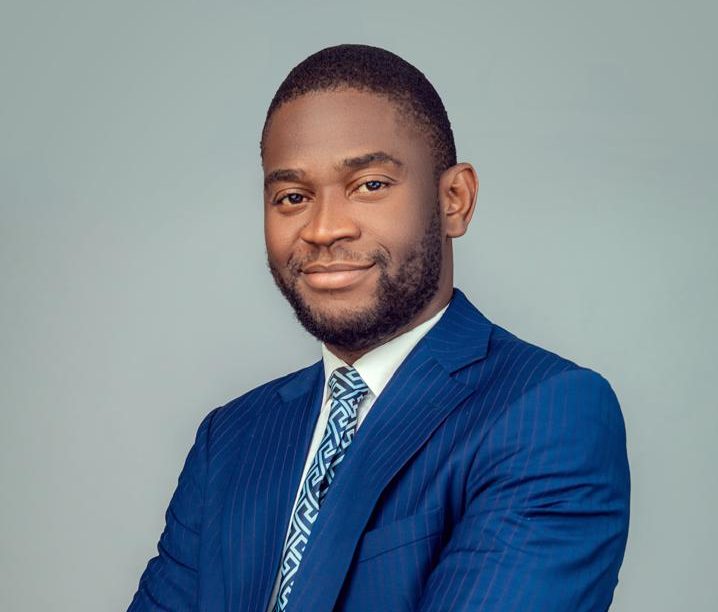
David Osadolor is the lead consultant at DameOasis Consulting and brings more than thirteen (13) years of experience in the luxury retail sector. His career journey has taken him through Switzerland, Dubai, and Germany, where he underwent extensive training and gained mentorship from leading industry figures. Over the years, he has successfully managed prestigious Swiss brands such as Hublot, Tag Heuer, Ulysse Nardin, Bvlgari, and Louis Moinet. His leadership extends beyond business, as he currently serves as the President of the Nigerian Young Professionals Forum, where he continues to inspire growth and innovation. In this exclusive interview with Alaba Ayinuola of Business Africa Online (BAO), David shares valuable insights on how he is empowering luxury professionals and brands through bespoke training programs, and more. Excerpts.
Alaba: Could you briefly tell us about DameOasis Consulting, and what inspired you to start it?
David: With over 13 years of distinguished experience in the luxury industry, spanning fashion, hospitality, interior décor, lifestyle, watches, high jewelry, high-end accessories, as well as premium wine and whiskey, I realized that while Nigeria’s luxury retail space is growing, there remains a significant knowledge and service gap compared to international standards. For me, the inspiration behind DameOasis Consulting stems from a passion to transfer the knowledge I’ve acquired over the years, and to raise the bar for luxury service and client experience in Nigeria.
Our focus is on enriching the professionals who engage directly with clients, whether through products or services, by equipping them with the right skills in luxury sales, customer service, cold calling, pitching, and overall client engagement. When service is elevated, the entire ecosystem benefits, and Nigeria can begin to reflect a true luxury culture.
The name “DameOasis” is also deeply personal. “Dame” combines my name, David, and my wife’s name, Mercy. “Oasis” connotes water, which symbolizes life and renewal. We see ourselves as springing forth something new and vital in Nigeria’s luxury space, the first of its kind dedicated to truly redefining service and experience.
Alaba: How do you define luxury, and what sets your approach apart from others in the industry?
David: Luxury has many definitions, but one of the most profound I encountered during a course with the LVMH group captures it in four dimensions:
- Emotions beyond ownership
- Creativity beyond trend
- Quality beyond aesthetics
- Legacy beyond desire
For me, any true luxury product or service must embody these four qualities. It must be more than a status symbol, it should stir emotions, reflect timeless creativity, go beyond surface beauty, and leave behind a lasting legacy. What sets DameOasis apart is our insistence on these principles. We don’t just talk about selling luxury products; we focus on creating experiences, shaping perceptions, and instilling the mindset required to serve clients at the highest level.
Alaba: What specific challenges do luxury professionals and brands face, and how does your firm address these challenges?
David: The biggest challenge we see in Nigeria’s luxury industry is the gap in service quality. While brands invest heavily in bringing products into the country, the client experience often falls short of global standards. In addition, the word “luxury” has been overused and misapplied, with many businesses claiming the label without truly meeting its requirements.
At DameOasis, we address these gaps by bridging knowledge and skill shortages, helping professionals understand what authentic luxury is and how to deliver it. Our trainings elevate both service and product delivery, ultimately driving customer loyalty and increased revenues for brands.
Another challenge is cultural, many clients still prefer shopping abroad, which drains capital from the local economy. Through our work, we’re fostering a cultural shopping shift by connecting high-net-worth individuals (HNIs) with local professionals and brands, ensuring they can enjoy the same quality of service and authenticity here in Nigeria.
Alaba: How do you tailor your training programs to meet the unique needs of each client?
David: Our approach is highly customized. Luxury is a broad industry, covering fashion, watches, jewelry, hospitality, lifestyle, Real Estates and automobiles, so we always tailor our programs to the specific sub-sector and the client’s needs.
When engaged, we don’t just accept an organization’s brief at face value. We conduct a thorough needs assessment, including speaking to staff, clients, and management. This allows us to pinpoint the real gaps and design training that directly addresses them.
We also balance global best practices with local realities. Having been trained by some of the best in the international space, we adopt global trends but adapt them to suit Nigeria’s dynamic customer culture, ensuring our programs remain both world-class and locally relevant.
Alaba: What topics or areas do your training programs typically cover, and how do you ensure they stay relevant and effective?
David: Our programs cover a wide range of topics, from core luxury sales and customer engagement to leadership, business transformation, and client experience management. Depending on the client’s sub-sector, we include specialized modules such as cold calling, luxury storytelling, clienteling, and emotional intelligence in sales.
To remain relevant, we constantly update our content based on international trends, insights from our global partners, and ongoing research. At the same time, we refine our materials to reflect Nigeria’s unique market dynamics, so participants can apply what they learn directly in their day-to-day roles.
Alaba: How do you measure the effectiveness of your training programs, and what outcomes have you seen?
David: We measure effectiveness through a combination of short-, medium-, and long-term assessments. Immediately after training, participants complete feedback forms, and we provide handbooks to HR teams for continued reinforcement.
Beyond that, we follow up with organizations to monitor how trainees are applying the skills. We also engage CEOs, HR leaders, and most importantly customers. If customers notice improved service and return to repurchase, then we know the training has delivered its intended results. Luxury is about building loyalty, and the ultimate proof of impact is customer satisfaction and brand loyalty.
Alaba: What feedback have you received from clients, and how has it shaped your approach to consulting?
David: Feedback has been overwhelmingly positive, but it has also been instrumental in shaping our evolution. Clients appreciate the practical, hands-on nature of our trainings, as well as the international perspectives we bring.
We actively encourage feedback, not just from trainees, but also from clients, mentors, international partners, and even through online engagements. This feedback helps us innovate in areas such as training delivery, networking sessions, technology use, and follow-up systems. We see ourselves as a learning organization, always adapting to serve better.
Alaba: Lastly, what trends do you see shaping the luxury industry in the coming years, and how will your firm adapt?
David: Globally and locally, several trends are emerging. One is radical transparency, particularly driven by Gen Z consumers, who want to know the full story behind any product they buy.
Another is the growth of the pre-owned luxury market, as ownership models evolve and more people seek to experience luxury in flexible ways. We also anticipate stronger omni-channel experiences, with digital retail growing rapidly while physical boutiques evolve into experiential spaces where customers can immerse themselves in luxury.
Most importantly, the market will increasingly demand authenticity. The line between genuine and fake will become clearer, and only brands and professionals who deliver true value and service will thrive. At DameOasis, we’re preparing our clients for this future by ensuring they are trained to meet international standards, embrace technology, and remain authentic custodians of luxury in Nigeria and Africa.
CEO Insights
CANEX Creations Inc. appoints Osahon Akpata as Chief Executive Officer
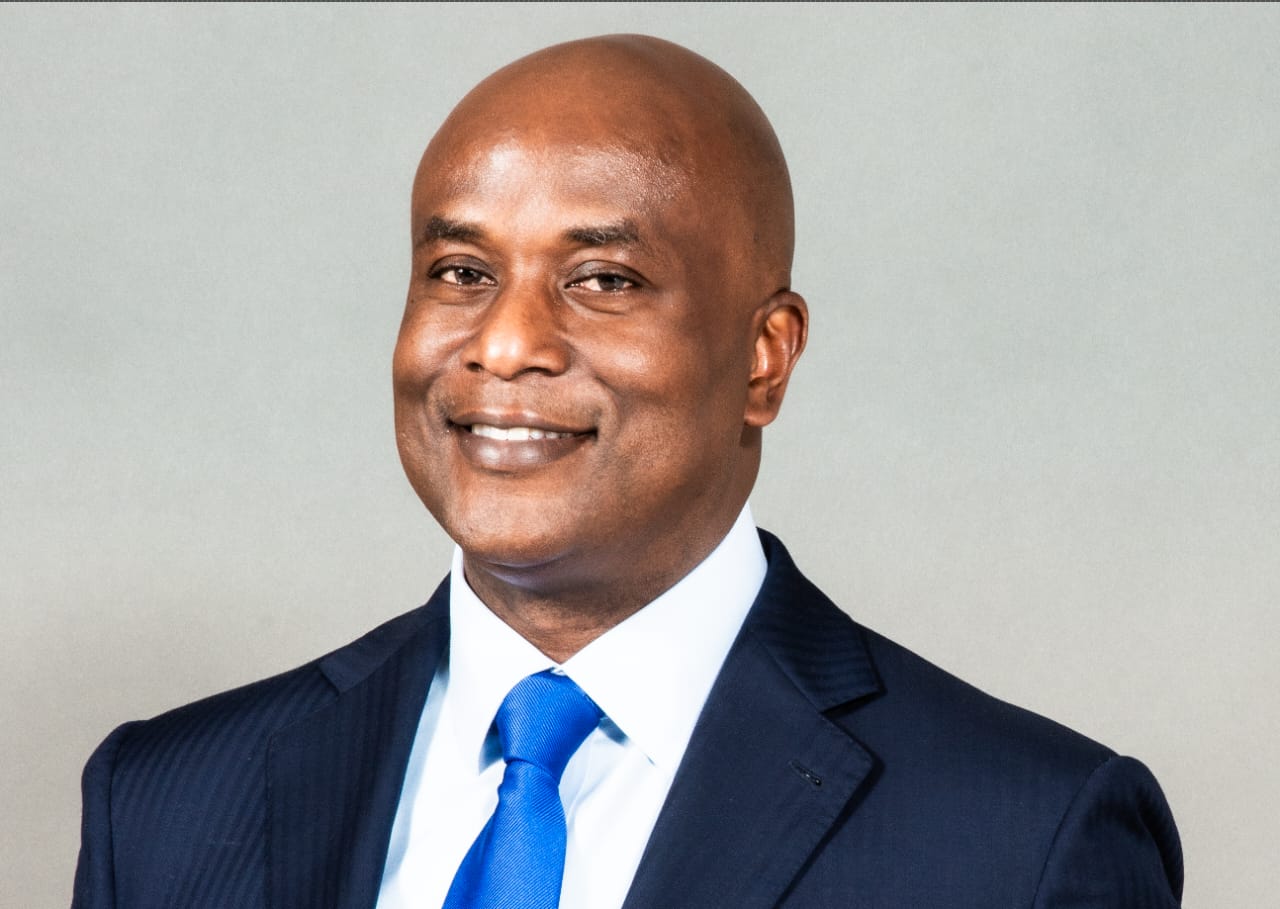
The Board of Directors of the CANEX Creations Incorporated (CCInc), a subsidiary of the Fund for Export Development in Africa (FEDA), has appointed Mr. Osahon Akpata as Chief Executive Officer to lead the company. The board confirmed the appointment during its meeting on the sidelines of the fourth Intra-African Trade Fair (IATF2025) which was organised by African Export-Import Bank (Afreximbank) in Algiers, Algeria, from 4 to 10 September 2025.
Until his appointment, Mr. Akpata was the Head of CANEX Creations within the Afreximbank Group, taking on a central role in CCInc’s journey since its inception. In that position, he led the operationalisation of the entity, shaping its strategy, establishing its governance framework and building its initial investment pipeline.
Prior to that, Mr. Akpata served at Ecobank Group, where he led the SME business, retail payments and strategic partnerships, building several new business units. Earlier, he worked at McKinsey and Company with responsibility for advising African banks and multinational clients on strategy execution. He began his career at Johnson and Johnson in the United States and earned awards for excellence in the pharmaceutical division.
Beyond his corporate roles, Mr. Akpata has supported high-profile projects in film, television, publishing and visual arts and is widely recognized as a trusted advisor in Africa’s media and entertainment ecosystem. He has cultivated strong global industry networks and has been a published author since the age of 11, with works that have appeared in Essence, Forbes, and Vogue Italia magazines.
Commenting on the appointment, Mrs. Kanayo Awani, Chairperson of the CCInc Board, said that, with a career spanning finance, strategy and business development, Mr. Akpata would bring a rare blend of expertise to the role.
“The Board was, therefore, very pleased to confirm him as CEO, particularly given the instrumental role he has played in building CCInc from the ground up and his proven ability to bridge investment expertise with deep knowledge of Africa’s creative and innovation economy. These attributes make Mr. Akpata very well suited to lead the company into its next phase of growth”.
Speaking on his appointment, Mr. Akpata said: “I am honored to take on this role at such a critical juncture for Africa’s creative economy. CCInc is uniquely positioned to unlock the full value of African intellectual property by driving commercialization, building global partnerships, and delivering returns that benefit creators and economies alike.”
Mr. Akpata holds an MBA in Media Management from Columbia University (USA), a BA (Hons) in Accounting and Finance from Nottingham Trent University (UK) and a diploma in Strategic Partnerships from IMD Business School (Switzerland).
CEO Insights
Building Sustainable Success: Insights from Olaide Olusoji-Oke, CEO of O3 Advisory
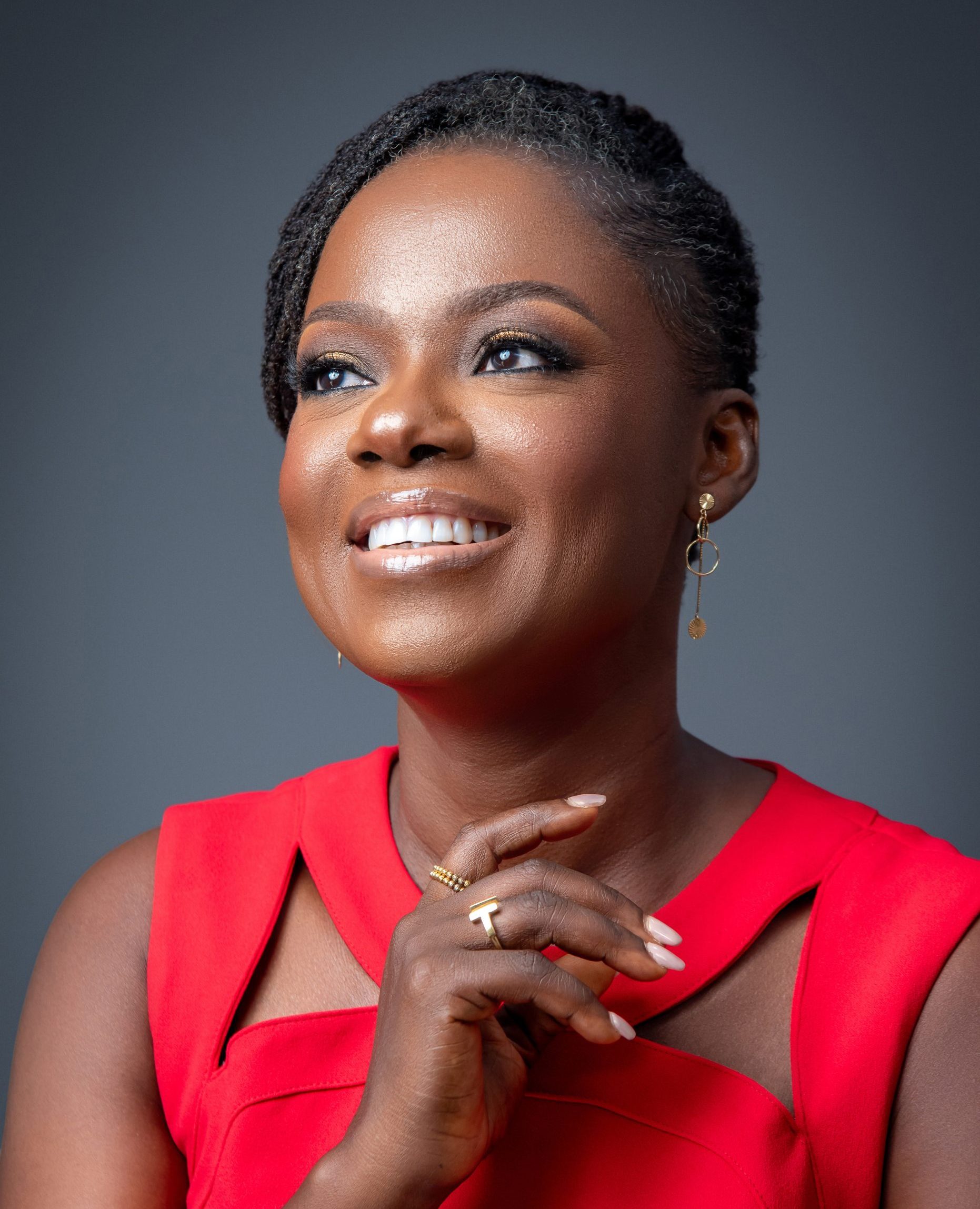
Olaide Olusoji-Oke is a seasoned finance strategist with over 20 years of experience in financial strategy, investor relations, treasury and liquidity management, auditing, IFRS reporting, taxation, and fundraising. She has worked across key sectors, including oil and gas, technology, healthcare, and investment. Olaide is a champion of building strong financial systems that enable businesses to unlock long-term value. She has held senior roles at ARM Investment Managers, and EchoVC Partners, a venture capital firm that invests from Africa into emerging markets and the US, where she led fund and portfolio operations across over 40 startups. Olaide currently leads as the CEO of O3 Advisory Limited. In this exclusive interview with Alaba Ayinuola of Business Africa Online (BAO), Olaide shares valuable insigts on strategic planning, financial management, and leadership. Excerpts.
Alaba: Briefly describe your experience working with founders and management teams to drive business growth and sustainability?
Olaide: Before O3 Advisory was founded, I had spent years working closely with founders and management teams across various sectors, helping them make sense of their numbers, tighten their processes, and build confidence in their decisions. That dedication hasn’t changed.
At O3 Advisory, we work with founders and management teams who are passionate about what they do but often overwhelmed by the backend of running a business, especially the finance and operations side. We step in to provide clarity. From designing financial systems that support decision-making, to building internal controls that reduce risk, I lead a team that doesn’t just advise; we roll up our sleeves and co-create sustainable structures. Clients often say we bring a calming clarity to their chaos, and I think that’s because we don’t just show them the numbers, we help them understand what the numbers are saying and how to act on them.
Alaba: How do you approach financial planning and analysis to drive business decisions?
Olaide: it comes to financial planning and analysis, I approach by starting with a clear understanding of the business model, goals, and current realities. I like to get into the details; revenue flows, cost drivers, operational leakages, and then use that data to build forecasts and scenarios that are realistic and decision-focused. It is not only about tracking performance; it is about asking the right questions and using the numbers to guide strategy, whether it’s for expansion, cost restructuring, or investor conversations. Corporately, this is how we empower business leaders, by giving them the clarity and confidence to make smart, timely decisions backed by solid analysis.
Alaba: Can you describe your experience with process development and implementation?
Olaide: Absolutely. One of the things I enjoy most is turning chaos into clarity through well-thought-out processes. My team and I have worked with a number of businesses where critical functions like financial reporting, approvals, or expense management were largely informal or inconsistent. We were able to intervene by first assessing what was working, what was missing, and where the risks lie. From there, we co-create practical, scalable processes that improve control, reduce errors, and free up leadership to focus on growth. For many of our clients, having those systems in place is the turning point from just surviving to building a truly sustainable business.
Alaba: What approaches do you use to manage risk and ensure business continuity?
Olaide: I take a very proactive and preventive approach to risk. I don’t believe in waiting for things to go wrong before we act. This is also the mode of operation at O3 Advisory, we help businesses spot potential issues early, things like weak controls, gaps in processes, or areas where money could leak. Then we build systems that protect the business and keep it running smoothly, even when unexpected things happen. We also make sure the team understands what to look out for, so risk management isn’t just a one-time fix, it becomes part of how the business works every day.
Alaba: How do you build and maintain effective relationships with founders, management, and other stakeholders?
Olaide: For me, building strong relationships with founders, management, and stakeholders starts with integrity and trust, this is built through consistency, clear communication, and mutual respect. I make it a point to listen deeply, understand their pain points, and stay accessible, especially when decisions get tough. On the corporate front at O3 we’ve also built in formal feedback systems and regular check-ins so that conversations aren’t just reactive, they’re part of the rhythm of how we work. That structure helps us align expectations, track progress, and make room for honest, strategic dialogue. Over time, it is that mix of personal connection and professional accountability that keeps the relationships solid.
Alaba: What strategies do you use to stay adaptable in a rapidly changing business environment?
Olaide: At O3 Advisory, staying adaptable is an integral part of how we move; it’s not something we wait to switch on when things change. We stay really close to what’s happening with our clients and in the business environment, whether it is regulatory changes, economic shifts or evolving business models, so we can respond early instead of reacting late. We’re big on learning, so the team is always sharpening skills and sharing insights across projects. And the way we build our systems and services? We keep them flexible on purpose, so if something shifts, we’re not scrambling, we’re adjusting. That’s how we stay grounded, even when the business landscape keeps moving.
Alaba: Can you share an example of how you’ve navigated a significant business challenge or crisis?
Olaide: Yeah. So we worked with a tech-enabled services company that had strong potential but couldn’t attract investors because their finances were all over the place, no proper records, unclear revenue streams, and zero visibility into their cost structure. We came in and cleaned up their books, built a solid financial model, and helped them understand and tell their business story in numbers. We also worked with their leadership to tighten internal controls and implement simple reporting tools. Within a few months, they pitched again, this time with clarity and confidence and secured funding from two institutional investors. That’s the kind of transformation we’re proud to lead.
Alaba: Lastly, what is your advice to budding entrepreneurs and policymakers in Africa?
Olaide: From years of working with entrepreneurs and policymakers in Nigeria and across Africa, my biggest advice is this: build with structure and integrity from day one. Passion will get you started, but it is systems, clear numbers, and strong values that will keep you going. For entrepreneurs, avoid commingling personal and business funds, as it is one of the fastest ways to lose investor trust and confuse your own progress. Keep clean records, stay accountable, and build with the future in mind. For policymakers, create environments that encourage transparency, simplify compliance, and support access to foundational business education. We’ve seen how powerful vision and discipline can be for an entrepreneur. When structure meets integrity, African businesses won’t just survive, they will thrive.
-
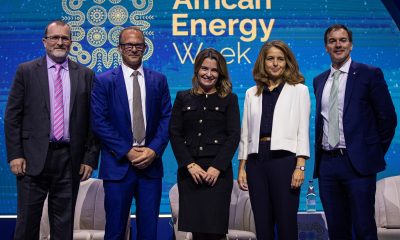
 Oil and Gas2 days ago
Oil and Gas2 days agoTotalEnergies, Chevron Push for Faster Permits, Better Seismic Data in Africa
-
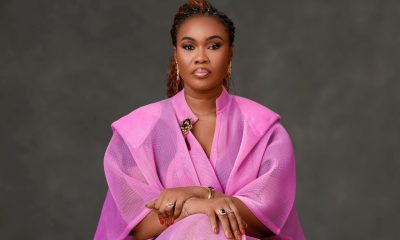
 Afripreneur12 hours ago
Afripreneur12 hours agoRevolutionizing Cross-Border Payments in Africa: An Exclusive Interview with Onyinye Olisah
-
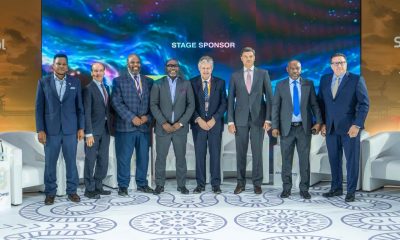
 Energy2 days ago
Energy2 days agoUnited States (U.S.) Political Will, African Reforms Signal New Era for Energy Investment










